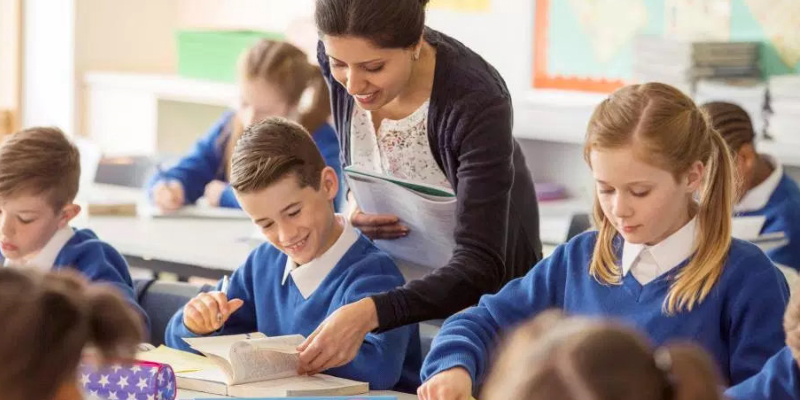
According to an international report by education firm Pearson: Finland and South Korea, are top of the list of 40 developed countries with the best education systems. Hong Kong, Japan and Singapore follow. The findings showed that cultures supportive of learning is critical — as evidenced by the highly ranked Asian countries, where education is greatly valued and parents have grand expectations. While Finland and South Korea differ in methods of teaching and learning, they hold a shared social belief in the importance of education and its "underlying moral purpose."
The study aimed to help policymakers and school leaders identify key factors that lead to successful educational outcomes. The research draws on literacy data, government-spending figures on education, school entrance age, teacher salaries and degree of school choice. Outcomes such as national unemployment rates, life expectancy and prison population was also measured.
The report asserts:
Education Secretary Michael Gove announced in a recent press release, his plans for a review of the national curriculum in England:
“We have sunk in international league tables and the national curriculum is substandard. Meanwhile the pace of economic and technological change is accelerating and our children are being left behind…Our review will...give us a world-class curriculum.”
Although the National Numeracy Organisation (NNO) agree that change is needed, it has different ideas about a way forward for England, Chris Humphries stated on behalf of NNO that:
“We know how vital it is to build a numerate population – and how the UK is currently failing. The government now has the opportunity to develop the real knowledge and understanding that children need – for further education, work and life. The opportunity should not be lost.”
An article in the Independent newspaper highlighted the proposed differences: in maths, pupils will be expected to know all their times tables up to 12 times 12 by age nine, whereas under the current system they should know up to 10 times 10 by the end of primary school. By the age of seven, children will be expected to have memorised all so-called "number bonds" - simple addition and subtraction sums such as 9+9=18 or 15-6=9 - up to 20.
And by the time they finish primary school at age 11, children will be expected to be able to add, subtract, multiply and divide fractions and decimals. The DfE (Department for Education), has said that many of the above topics are not covered, which means pupils struggle when they get to secondary school and do not have the right grounding for more difficult concepts such as algebra.
The article summed up that curriculum reforms are designed to "restore rigour in what primary school children are taught in maths and science." Maybe we can express our views (either for or against) in our voting, as national elections loom.
However, there are 3 things we can do IMMEDIATELY for our children: we can promote a culture of life-long learning and education in our homes; we can work in partnership with our children’s educators; we can invest in our children’s education, according to our means. Some options available to parents include:
The difference that parents can make by giving their children clear messages about the value of education, is priceless.
References:
http://www.huffingtonpost.com/2012/11/27/best-education-in-the-wor_n_2199795.html